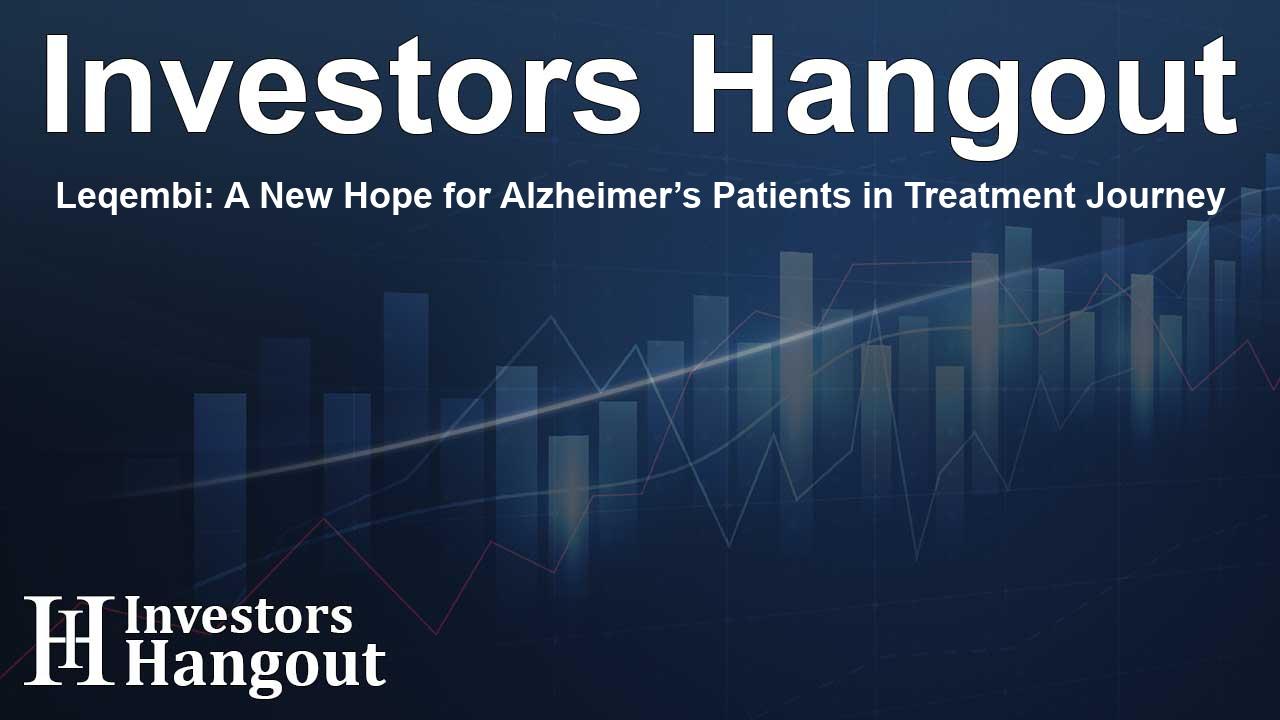Leqembi: A New Hope for Alzheimer’s Patients in Treatment Journey

Leqembi's Role in Alzheimer's Treatment
Biogen Inc. and Eisai Ltd have introduced an encouraging medication for Alzheimer’s called Leqembi (lecanemab). This drug has shown positive effects on patients diagnosed in the early stages of the disease. While it is not a cure, it provides hope by slowing cognitive decline for many individuals.
Real-Life Impact of Leqembi
Patients like Missie Meeks, an English professor from Mississippi who was diagnosed with Alzheimer’s before turning 50, have reported significant improvements in their daily lives thanks to Leqembi. The biweekly infusions have allowed her to maintain a level of independence, showcasing the drug’s potential to alter the impact of this difficult condition.
Mechanism and Benefits
Leqembi acts as a monoclonal antibody that aims to slow down memory and cognitive decline in patients experiencing mild cognitive impairment. This mechanism offers patients precious time to enjoy a better quality of life, even as they continue to face cognitive challenges.
Challenges in Rollout
Despite its promise, the rollout of Leqembi has encountered several logistical hurdles. Patients must undergo extensive testing, including PET and MRI scans, to determine their eligibility for treatment. These requirements can be time-consuming and often lead to frustration for both patients and healthcare providers.
Addressing Concerns and Considerations
Concerns persist regarding the side effects associated with Leqembi, such as potential brain swelling and bleeding, which have made some neurologists cautious about prescribing it. Additionally, the learning curve involved in managing the drug's effects has complicated its distribution.
Patient Perspective on Risk vs. Benefit
Many patients have expressed confidence in the benefits of the medication, believing that they outweigh the associated risks. As more individuals begin treatment, this positive sentiment may foster broader acceptance within the medical community.
Sales and Future Directions
Since its approval, Leqembi's sales have surged, with Biogen reporting nearly $60 million in revenue from the medication during the first half of 2024. This success highlights the demand for effective Alzheimer’s treatments and has prompted Biogen to look into ways to make treatment administration more efficient, possibly including options for subcutaneous injections.
Regulatory Approval in Europe
Recently, Leqembi gained attention as the first early Alzheimer's treatment targeting the underlying cause of the disease to be authorized in a European country. However, it faced criticism regarding its cost-effectiveness assessment by organizations like the National Institute for Health and Care Excellence (NICE), which warned that the benefits of the drug may not justify its costs.
Conclusion
As advancements in Alzheimer’s treatments progress, Leqembi emerges as a significant option despite the challenges it faces in practical application. Ongoing research and patient experiences continue to highlight the role of such innovations in enhancing the quality of life for those navigating the complexities of Alzheimer’s disease.
Frequently Asked Questions
What is Leqembi and how does it work?
Leqembi is a monoclonal antibody developed by Biogen and Eisai that helps to slow down memory and cognitive decline in early Alzheimer’s patients.
Who can benefit from Leqembi treatment?
Individuals diagnosed with mild cognitive impairment and early Alzheimer's disease may qualify for Leqembi treatment after undergoing thorough medical evaluations.
What are the common side effects of Leqembi?
Possible side effects include brain swelling and bleeding, which have raised caution among neurologists prescribing the drug.
How has Leqembi impacted sales for Biogen?
Since its release, sales of Leqembi have significantly contributed to Biogen’s revenue, evidencing the high demand for effective Alzheimer's treatments.
What are the logistical challenges facing Leqembi’s rollout?
Challenges include extensive diagnostic requirements, limited neurologists authorized to prescribe it, and the need for insurance coverage, impacting patient access.
About The Author
Contact Henry Turner privately here. Or send an email with ATTN: Henry Turner as the subject to contact@investorshangout.com.
About Investors Hangout
Investors Hangout is a leading online stock forum for financial discussion and learning, offering a wide range of free tools and resources. It draws in traders of all levels, who exchange market knowledge, investigate trading tactics, and keep an eye on industry developments in real time. Featuring financial articles, stock message boards, quotes, charts, company profiles, and live news updates. Through cooperative learning and a wealth of informational resources, it helps users from novices creating their first portfolios to experts honing their techniques. Join Investors Hangout today: https://investorshangout.com/
The content of this article is based on factual, publicly available information and does not represent legal, financial, or investment advice. Investors Hangout does not offer financial advice, and the author is not a licensed financial advisor. Consult a qualified advisor before making any financial or investment decisions based on this article. This article should not be considered advice to purchase, sell, or hold any securities or other investments. If any of the material provided here is inaccurate, please contact us for corrections.
